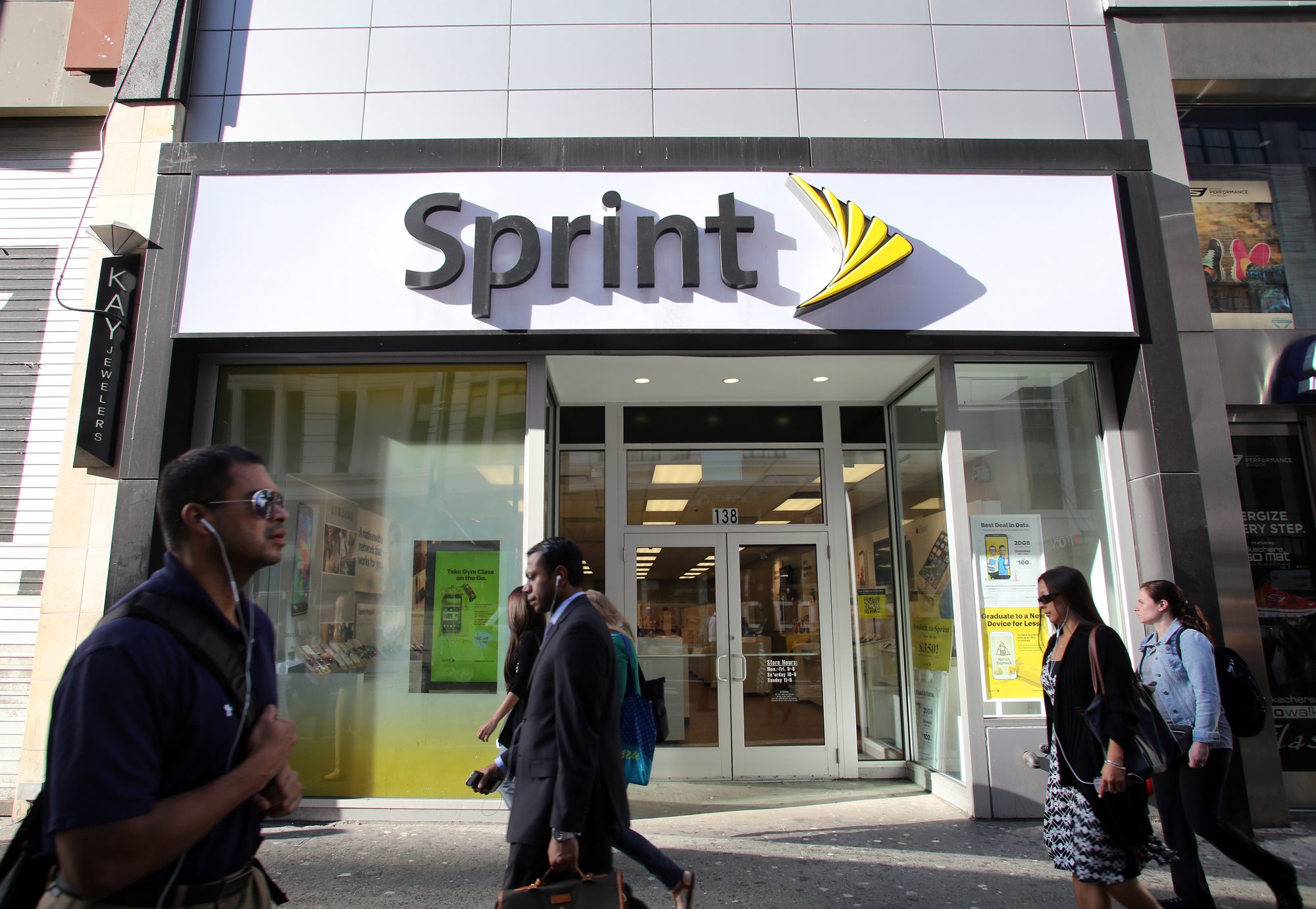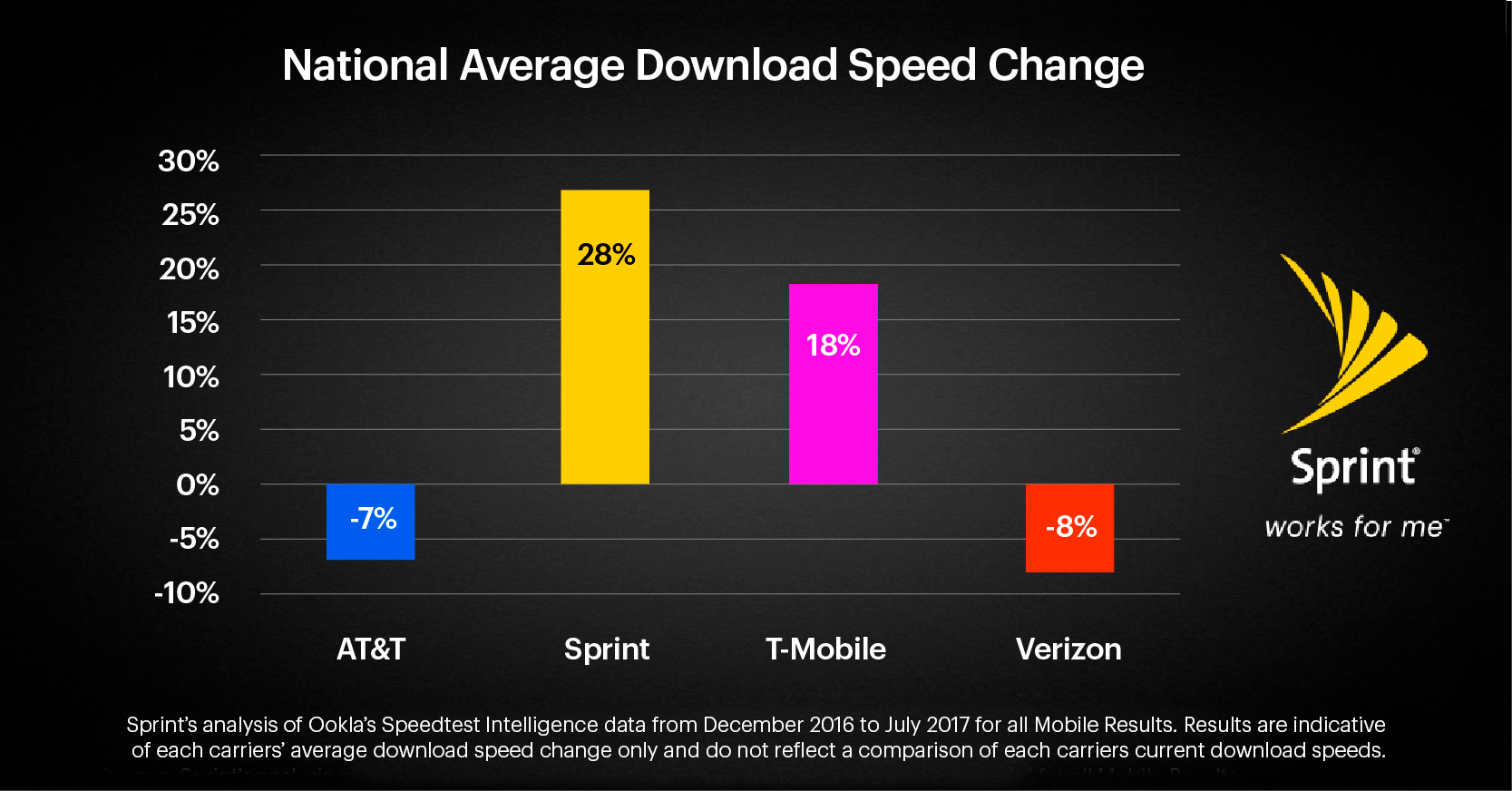Affiliate links on Android Authority may earn us a commission. Learn more.
Sprint’s LTE speed is up by 28%, but is that enough?

According to the latest data, Sprint’s average speeds improved by 28 percent over the last seven months – but can it compete with the other three?
It seems like Sprint is making dramatic improvements to its LTE speed, at least in some areas in the US: citing the latest data by Ookla Speedtest Intelligence, Sprint says that its average download speed has increased by 28 percent in the last seven months and that it is now ranked #1 for the fastest average download speed in 15 cities such as Atlanta, Denver, Indianapolis, Salt Lake City, and Seattle.

The data indicate that T-Mobile also saw a moderate improvement with an 18 percent increase in its average download speed over the same period. Meanwhile, however, AT&T and Verizon both saw a decrease of 7 percent and 8 percent respectively, which according to the same report is due to their introduction of unlimited data plans. Sprint claims that it manages customer demand in a more efficient way, and that’s why its speeds are going up despite also offering unlimited plans.
The fourth largest carrier continues, “Sprint’s newest innovation, Sprint Magic Box, is improving data speeds for thousands of its customers… These low-cost, easy-to-deploy solutions are a great way to quickly improve data service and add more capacity in an unlimited network where it’s needed.”
Despite the increase, Sprint is still most likely to be the slowest carrier in terms of LTE speeds.
So Sprint’s LTE speed has increased quite rapidly over the past seven months while two of the largest carriers in the US saw a decrease in their speeds – what does that mean? Unfortunately for Sprint, the 28 percent increase isn’t a game-changer. Based on OpenSignal’s data from this past February, Sprint is still most likely to be the slowest carrier in terms of LTE speeds. T-Mobile, on the other hand, may dethrone Verizon for fastest LTE speeds in the near future if it continues the upward trend.
Not only that, Sprint’s press release mentions only national download speeds for all four carriers, meaning we have no way of knowing what kind of changes have occurred in upload speeds, latency, and network availability, all of which are equally important. The bottom line is this: while Sprint’s effort to make further improvements to its LTE networks is commendable, it’s probably not enough to pose a serious threat to the other three carriers.
Are you on Sprint? Have you noticed any improvement in terms of LTE download speeds in the past few months? Let us know by leaving a comment below!